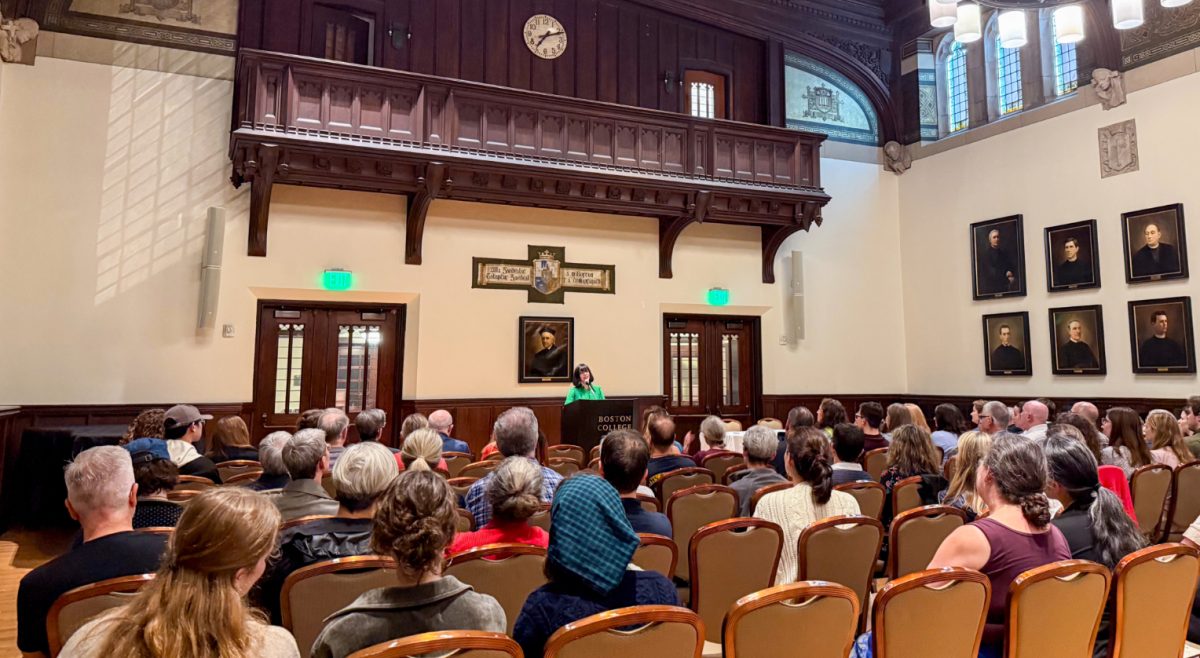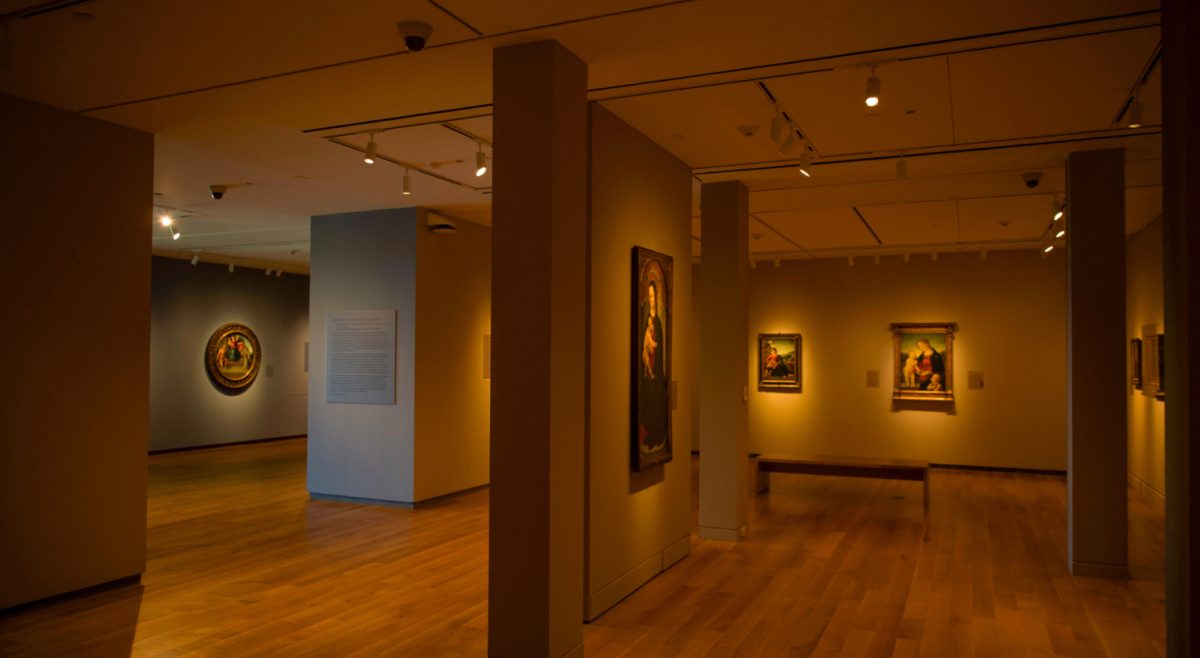For poet Doireann Ní Ghríofa, poetry can serve as a guiding light in moments of darkness. When her grandfather died, a poem suddenly came to her, and writing and reading became both a solace and a passion.
“In that particular darkness, that poem felt like a breeze flowing through me,” Ní Ghríofa said. “It was from death that this spark arrived.”
Boston College hosted Ní Ghríofa on Wednesday evening as part of its Lowell Humanities Series. The Irish poet and writer read excerpts from her acclaimed prose work Ghost in the Throat, along with several poems, to a full crowd.
Ní Ghríofa opened powerfully, speaking about the connection poetry can forge between the living and the dead.
“Literature can hold ghosts and let us remember the dead, and converse,” Ní Ghríofa said.
One of the lecture’s main themes was the literary tradition. The author emphasized how each time one opens a book and reads a poem, they are giving a voice to that writer and starting a dialogue with them. Ní Ghríofa’s own journey in writing was greatly helped by reading poets from the past.
“Maybe it wouldn’t matter if I didn’t go to university if I could recruit my own teachers from the library shelves,” Ní Ghríofa said.
Remembrance and grief are inseparable from Ní Ghríofa’s work. Her book Ghost in the Throat is largely an exploration of the poem “Caoineadh Airt Uí Laoghaire,” (The Lament for Art O’Leary). Written by Eibhlín Dubh Ní Chonaill for her husband after he was killed by English soldiers, this Irish keening—a traditional lament for a dead loved one—serves as the foundation of Ní Ghríof’s project. Through it, she brings the tradition of mourning into the modern age with her own works of remembrance.
Ní Ghríofa read excerpts from Ghost in the Throat and spoke of her desire to know more about Eibhlín Dubh—a desire that drove the book forward. This passion for uncovering the past was echoed in her poem “Between Nectarines,” which reflects on a family member she only ever knew by their headstone.
Much of Ní Ghríofa’s work is written in Irish, and many of the poems she shared during the lecture were read in their native language. Even for those who do not speak Irish, hearing the poems was a beautiful experience—the language itself lends powerfully to the spoken word, making for an impactful performance. Ní Ghríofa often read a poem in Irish first and then repeated it in English, creating a kind of meditation on translation and language.
Ní Ghríofa ended her lecture with a powerful reading of “Train Ride” by Ruth Stone, dedicating it to the end of conflict in Palestine and Ukraine, and as a call for world peace.













